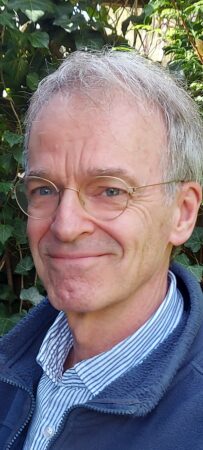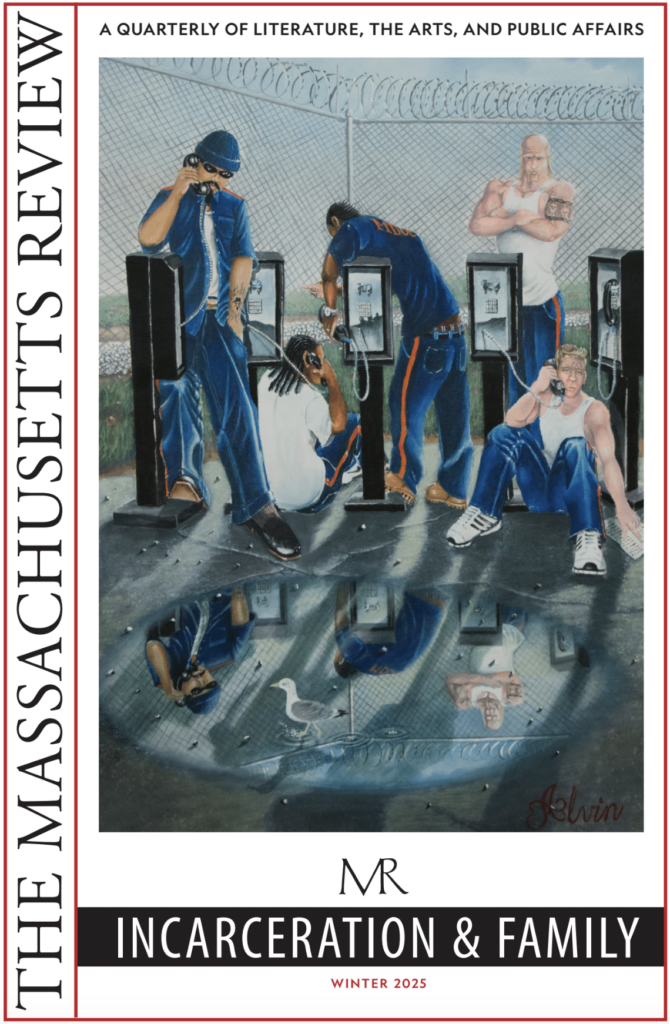10 Questions for Arno Bohlmeijer

and know: the clouds don’t know about the rain,
and the water doesn’t know about the leaves
from which it beats the music, rhythms, language
—from Arno Bohlmeijer’s translation of “Become,” by Esther Jansma, Vol 66 Issue 3 (Fall 2025)
Tell us about one of the first pieces you wrote.
“The Intruder,” Encounter Magazine, UK 1987, an essay on the biggest literary war, around Henry James’s The Turn of the Screw. The very quantity and vehemence of reactions from readers and critics point to the effects of archetypes. James himself called it “an inferior, a merely pictorial, subject and rather a shameless potboiler,” and he repeated the apology with striking or suspicious
emphasis.
When the main characters in The Turn of the Screw are seen as Jungian archetypes, all will fall into place, ending or blending the opposites, revealing Henry’s hidden side. Professor Carl Jung showed how much archetypes can mean.
What writer(s) or works have influenced the way you write now?
Sorry, none. Does that sound awfully presumptuous? No, it’s the opposite: modesty. Afraid to step on toes, or to “plagiarize” by mistake (being influenced unwillingly) and ruin future publications, I don’t read any colleagues when I write – all the time. So, don’t be offended, Ian McEwan or Jane Austen, it’s my fault, being hypersensitive, highly confusable, impressionable. Don’t quote these out of context, please.
What did you want to be when you were young?
Apart from a teacher: track & field athlete, dancer, gymnast, journalist, psychologist. Pianist – as if, with ridiculous stage fright. Nothing ambitious, just passionate.
What inspired you to write this piece?
The best authors are often extra strong, moving, profound, evocative, when they write about children. When I’m deeply touched, a translation can come or happen of its own accord, appealing to the mind and soul.
This first poem by Esther Jansma is a fine example of the inner child. The second is from her farewell collection, an awe-inspiring monument beyond death. She died in January 2025 at the age of 66.
Is there a city or place, real or imagined, that influences your writing?
Mostly nature, big or small. Could be a silverfish in the kitchen sink. Or…. An example of “autonomous poetry.” When I’m out in peaceful nature, profoundly pleased, not thinking or planning anything, reading and sipping coffee, dozing off, stretched on a towel in the flowery field full of tiny wildlife…. This innocent physical scene begins to lead its own life or poem, turning into a deep and defiant thought on the world before I know it:
If
I’m to wish that
a sweet little beetle
does keep democracy,
deep red or yellow bright,
nine dots on its fine wings,
inspired by stars and stripes…
I’ll have to be carefree;
a caterpillar may pass here,
strapping in wary comparison,
taking more than a fair share,
needed to complete its transition,
before a big-misfit bully can forbid it,
into the symbol of diversity, mercy, eternity.
Is there any specific music that aids you through the writing or editing process?
An acclaimed author says, “I’m always writing things off my chest.” However, it’s the opposite: gems of words are received, life is written toward us, getting real while staying magic. Language happens in a grateful state of joy, that needs no music. In fact, it would only disturb me, while music is my second love.
Do you have any rituals or traditions that you do in order to write?
All sorts of ideas and contents come up of their own accord, in the shower, kitchen, train, on my bike. Outdoors is the best, where it’s not even ‘work’ at all. I can also wake up from deep sleep with a sentence or two in my head. The other day I was driving in heavy rain, when a poem came in French, would you believe, reminiscent of my student stint in France a life-time ago. The road required my full concentration, but the poem persevered and was noted the minute we arrived home – safely. No rituals.
Who typically gets the first read of your work?
Poetry: partner Tom.
Short stories or non-fiction: Journals and Reviews.
Novels: the publisher or editor.
Translations: the original authors or heirs.
If you could work in another art form, what would it be?
Who does not sing or dance and paint when clouds create shapes that take your breath away? Or graphic designing! (if only I had the technical skills)
What are you reading right now?
Well, there’s always a manuscript to be edited and checked. A letter or questionnaire. However….
Speaking from weird experience,
I’m so afraid of a “synchronicity”
that seems to trace me far and near,
I’d better not read any fellow author.
There would be extreme coincidence
instantly, and we’d never be able to say
who was first to choose these true words
turned into publication of a beautiful book?
ARNO BOHLMEIJER is the winner of a PEN America Grant 2021, poet and novelist writing in English and Dutch, published in six countries (US: Houghton Mifflin). His novel Narrowly appears in September 2025, about rare solidarity. www.arnobohlmeijer.com



